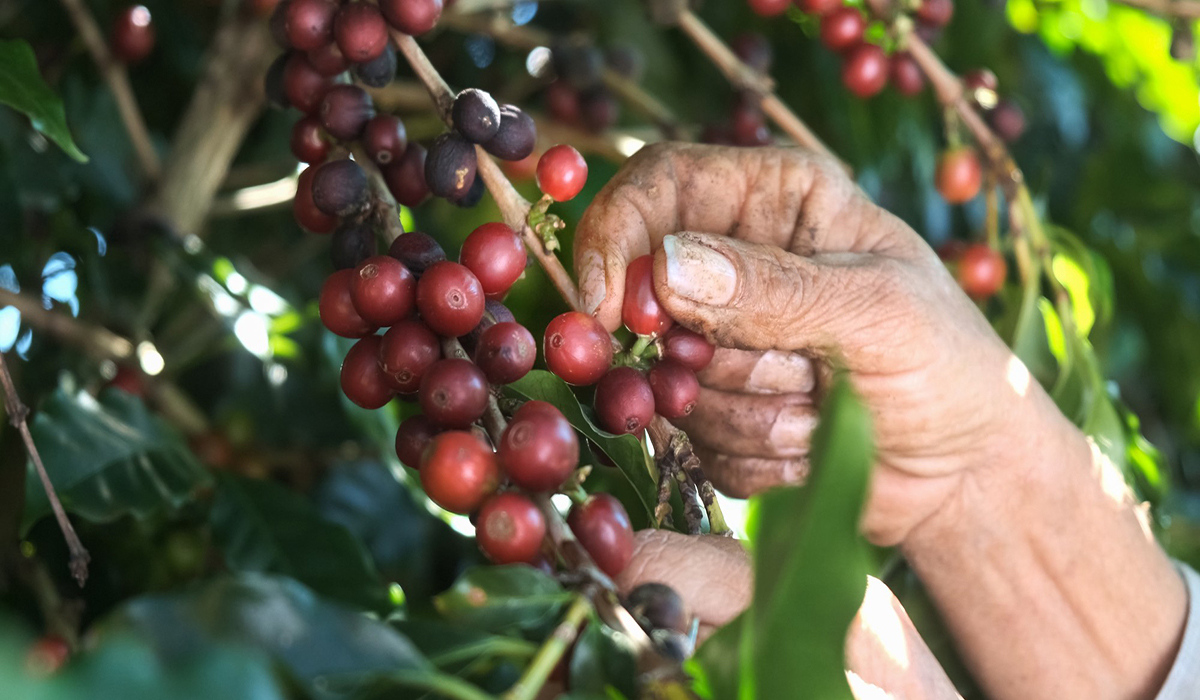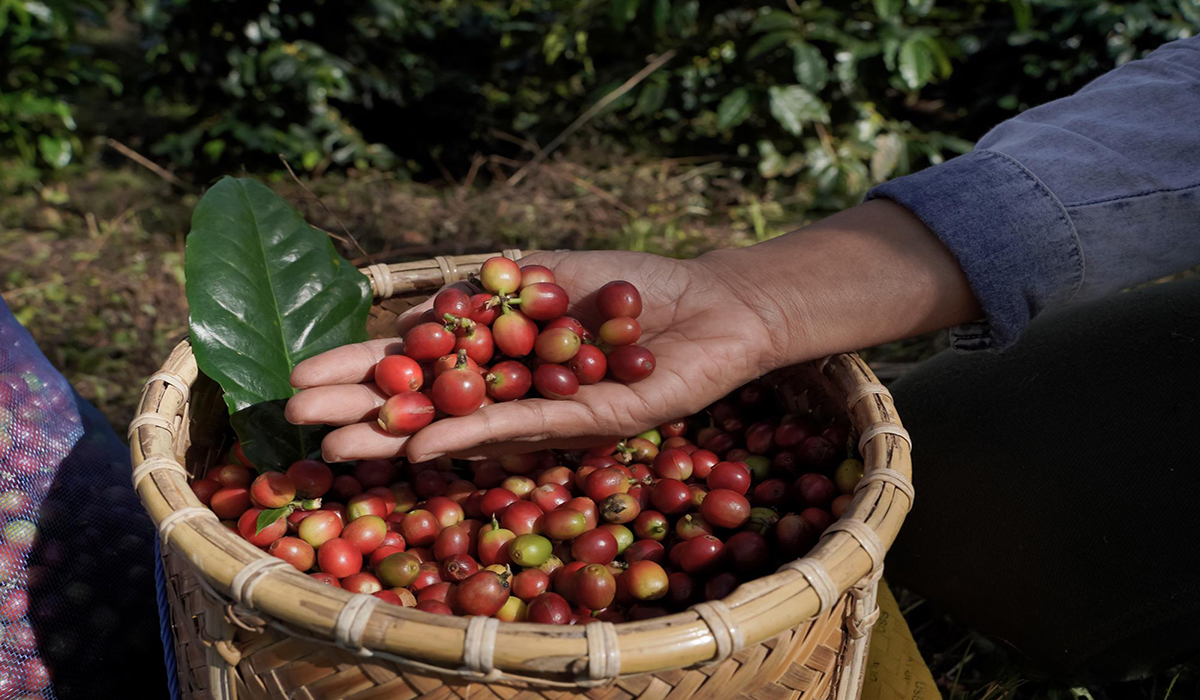The Impact of Various Factors on Coffee Flavor: From Soil Type to Altitude and Rainfall

The flavor of coffee is influenced by a wide range of factors, each playing a significant role in shaping the final taste of this beloved beverage. Among the most important parameters are soil type, altitude, and rainfall. Understanding how these elements affect coffee flavor is essential not only for baristas and coffee professionals, but also for anyone passionate about coffee — especially those looking for high quality coffee brands for cafés or home use.
By closely examining these factors, we can gain a deeper understanding of the diversity of coffee flavors and their unique characteristics. This knowledge helps consumers choose higher-quality coffees with flavor profiles that suit their preferences—ultimately enhancing their enjoyment of every cup.
But does sweet coffee really exist? The answer depends on the type of coffee, bean processing method, and growing conditions. Some varieties—especially those cultivated in specific soil types and at higher elevations—can produce coffee with naturally sweeter notes and milder acidity.
The Key Role of Soil in Determining Coffee Flavor
One of the most fundamental factors that shapes the final taste of coffee is the type of soil in which coffee trees are cultivated. The chemical properties, texture, and fertility of the soil directly affect the quality, aroma, and flavor of coffee beans.
Generally, two main types of soil are used for coffee cultivation:
volcanic soils rich in minerals, and clay soils with high water and nutrient retention capacity. Volcanic soils, due to being rich in minerals and salts, create a foundation for growing coffees with strong flavor and high acidity. On the other hand, clay soils can retain moisture and nutrients well, and as a result, coffees grown in this type of soil usually have a milder taste and creamier texture.
Now the question arises: Which coffee has less bitterness? Coffees that grow in this type of soil (clay) are usually milder and sweeter, and have less bitterness.
Types of Soil Suitable for Coffee Cultivation
- Volcanic soils:
- Rich in minerals and salts
- Suitable for growing coffees with strong flavor and high acidity
Example: Guatemalan coffees with distinctive taste due to growing in volcanic soils
- Clay soils:
- High capacity for water and nutrient retention
- Suitable for growing coffees with milder taste and creamier texture
Example: Brazilian coffees with chocolatey flavor due to growing in clay soils
The Impact of Soil Properties on Coffee Flavor and Quality
- Chemical Properties:
- Soil pH level (acidity or alkalinity)
- Presence of essential minerals and nutrients for the growth of coffee trees
- Soil Texture:
- Level of porosity and proper drainage
- Ability to retain water and nutrients
- Soil Fertility:
- Presence of organic matter and beneficial microorganisms
- Meeting the nutritional needs of coffee trees for optimal growth
The Fundamental Impact of Elevation on Coffee Quality
The elevation of coffee-growing regions also plays an important role in determining the final quality and flavor of coffee beans. In general, coffees planted at higher elevations, due to specific climatic conditions and growth challenges, have superior quality compared to those cultivated at lower altitudes.
Two main factors contributing to the superior taste of high-altitude coffees include lower temperatures and reduced oxygen and air pressure. Coffees grown at higher elevations experience cooler temperatures and greater day-night temperature differences, resulting in slower growth. This allows coffee beans more time to develop and enrich their aroma and flavor.
On the other hand, lower pressure and reduced oxygen levels at higher altitudes impose more stress on coffee trees, which increases the concentration of aromatic and flavor compounds in the beans. Arabica coffee is cultivated starting from 1000 meters in elevation and extends up to 2400 meters. The higher the elevation, the purer the oxygen, and this has a very favorable effect on the quality and aroma of the coffee.
Differences Between Arabica and Robusta Coffee Flavor
One of the most common questions among coffee enthusiasts is the difference in taste between Arabica and Robusta coffee. Arabica coffee flavor, which grows at high elevations, generally has complex aromatic characteristics, pleasant acidity, and sometimes fruity or floral undertones. Arabica grown in these soil types usually has pleasing acidity and tangy undertones, which is why Arabica coffee flavor tastes sour.
In contrast, Robusta has a stronger, more bitter, earthy flavor, sometimes with notes of nuts or wood. Robusta also contains more caffeine than Arabica, making it suitable for preparing strong espressos.
Climate Change and Rainfall: Influential Factors on Coffee Beans
In addition to soil and elevation, climatic conditions and annual rainfall have a significant impact on the quality, aroma, and flavor of coffee. For timely and proper growth, coffee requires sufficient rainfall along with moderate temperatures. Drought and reduced rainfall can limit the natural growth of coffee trees and result in reduced yield.
On the other hand, excessive rainfall, high humidity, and phenomena like monsoons can affect the drying process and the final quality of the beans. Sudden climate changes may also alter the taste of the coffee. For example, a few years ago in Guatemala, volcanic activity led to reduced rainfall, which caused a drop in coffee production and a sharp increase in its price.
Conversely, heavy rainfall and the monsoon phenomenon in India lead to the creation of unique flavor characteristics in the famous “Monsooned Malabar” coffee, which is dried in humid air. These types of coffee have very distinctive quality and flavor profiles.
Conclusion
As discussed in this article, various parameters including soil characteristics, elevation of cultivation regions, and rainfall conditions play an essential role in shaping the final taste and quality of coffee. Being aware of the impact of these factors enables coffee lovers to make more informed choices and select coffees that match their taste preferences.
Leading companies in the coffee industry, such as Parto Padideh, carefully control these parameters and select the finest beans, always striving to offer the best quality and flavor variety to their customers. Those seeking high quality coffee brands for cafés or looking to explore famous coffee brands in Iran can benefit from this understanding of how environmental and agricultural variables influence taste. Understanding the complexities and nuances of producing a flavorful cup of coffee can greatly enhance the enjoyment of drinking it.


